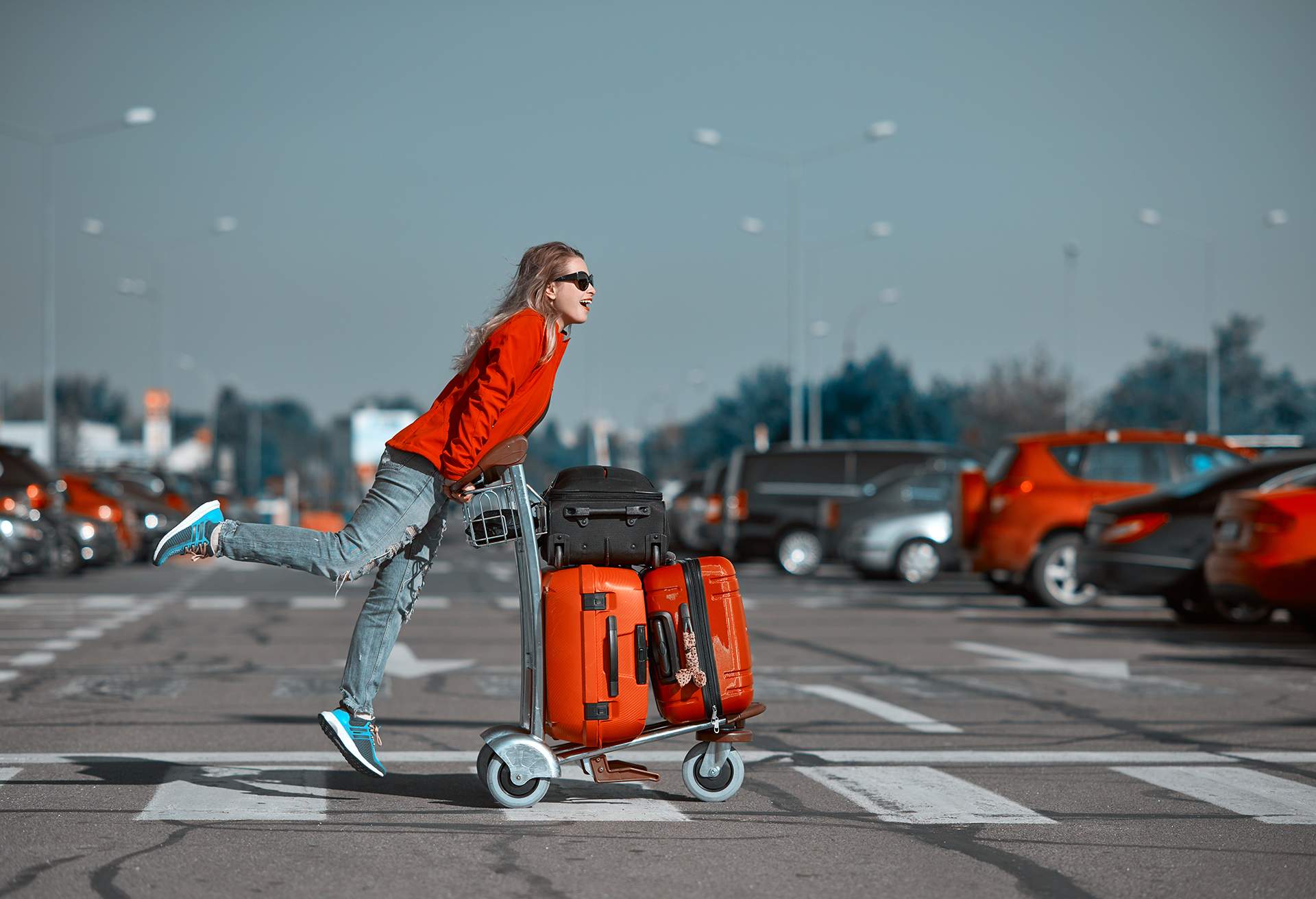
Ever wondered how much luggage you can bring on a flight? Baggage allowance rules can be confusing, varying from airline to airline. Knowing these rules can save you from unexpected fees and headaches at the airport. This blog post will break down 19 essential facts about baggage allowance, helping you pack smarter and travel with ease. Whether you're a frequent flyer or planning your first trip, understanding these guidelines is crucial. From carry-on limits to checked baggage fees, we've got all the details you need. Ready to become a baggage allowance expert? Let's get started!
Key Takeaways:
- Different airlines have different rules for baggage, so it's important to check the policies before packing. International flights often have more generous baggage allowances compared to domestic flights.
- To avoid unexpected fees, weigh your bags at home, pack efficiently, and know the airline's prohibited items. Label your luggage to prevent loss and make your travel experience smoother.
Understanding Baggage Allowance
Traveling can be stressful, especially when it comes to packing. Knowing the rules about baggage allowance can save time and money. Here are some interesting facts to help you navigate the world of baggage policies.
-
Different Airlines, Different Rules: Each airline has its own baggage policies. Some allow one free checked bag, while others charge for every piece of luggage.
-
Weight Limits Vary: Most airlines have a weight limit for checked bags, typically between 50-70 pounds. Exceeding this can result in hefty fees.
-
Carry-On Size Matters: Carry-on luggage must fit in the overhead bin or under the seat. Dimensions usually range around 22 x 14 x 9 inches.
-
Personal Items Count: Besides a carry-on, passengers can bring a personal item like a purse, laptop bag, or small backpack.
-
International vs. Domestic: International flights often have more generous baggage allowances compared to domestic flights.
Fees and Charges
Understanding potential fees can help avoid unexpected costs at the airport. Here are some key points about baggage fees.
-
First Bag Fees: Many airlines charge for the first checked bag, with fees ranging from $25 to $50.
-
Second Bag Fees: The cost for a second checked bag is usually higher, often between $35 and $70.
-
Overweight Charges: Bags over the weight limit can incur fees from $50 to $200, depending on the airline and weight.
-
Oversized Luggage: Larger items like sports equipment or musical instruments may require additional fees.
-
Pre-Paid Options: Some airlines offer discounts if baggage fees are paid online before arriving at the airport.
Special Baggage Rules
Certain items have specific rules and allowances. Knowing these can make traveling with special items easier.
-
Sports Equipment: Items like skis, golf clubs, and bicycles often have special allowances but may require advance notice.
-
Musical Instruments: Instruments can sometimes be carried on if they fit in the overhead bin, otherwise, they need to be checked.
-
Medical Equipment: Necessary medical equipment is usually allowed without additional fees, but it’s best to notify the airline in advance.
-
Baby Gear: Strollers and car seats can often be checked for free, but policies vary by airline.
Tips for Packing
Packing smart can help avoid extra fees and ensure a smoother travel experience. Here are some useful tips.
-
Weigh Your Bags: Use a luggage scale to weigh bags at home to avoid surprises at the airport.
-
Pack Efficiently: Rolling clothes instead of folding can save space and reduce wrinkles.
-
Use Compression Bags: These can help fit more items into your luggage and keep things organized.
-
Know Prohibited Items: Check the airline’s list of prohibited items to avoid having to discard belongings at security.
-
Label Your Luggage: Clearly label your bags with your name and contact information to prevent loss.
Understanding these facts about baggage allowance can make your travel experience smoother and more enjoyable. Happy packing!
Final Thoughts on Baggage Allowance
Understanding baggage allowance rules can save you from unexpected fees and headaches. Airlines have different policies, so always check before packing. Knowing the weight limits and dimensions for both carry-on and checked luggage ensures smooth travel. Remember, some items like electronics or medications should stay in your carry-on for easy access. If you're traveling internationally, be aware of stricter regulations and potential customs checks.
Packing smartly, using compression bags, and weighing your luggage at home can help avoid surprises at the airport. Frequent travelers might benefit from loyalty programs offering extra baggage perks. Lastly, always label your bags with contact information in case they get lost. By staying informed and prepared, you can focus on enjoying your trip rather than stressing over your luggage. Safe travels!
Frequently Asked Questions
Was this page helpful?
Our commitment to delivering trustworthy and engaging content is at the heart of what we do. Each fact on our site is contributed by real users like you, bringing a wealth of diverse insights and information. To ensure the highest standards of accuracy and reliability, our dedicated editors meticulously review each submission. This process guarantees that the facts we share are not only fascinating but also credible. Trust in our commitment to quality and authenticity as you explore and learn with us.


